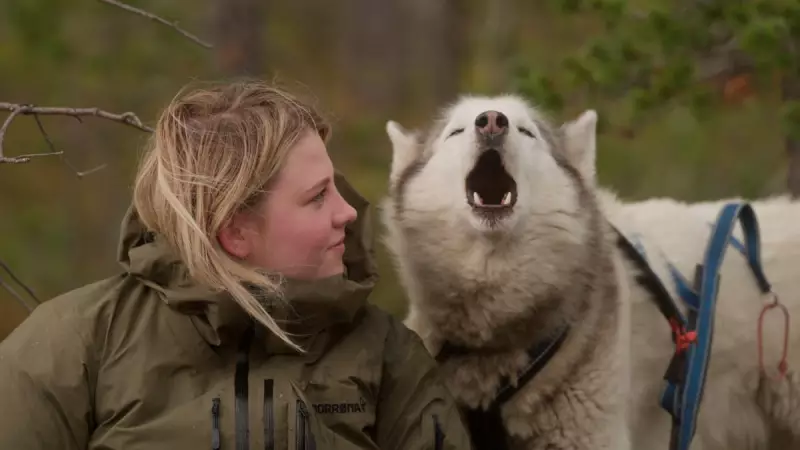
In an era dominated by digital screens and social media angst, a powerful new documentary proposes a radical, back-to-basics cure. Folktales, from the acclaimed directors of Jesus Camp, follows a group of teenagers as they trade their smartphones for sled dogs and survival skills in one of the most remote corners of Europe.
From Social Scrolling to Arctic Survival
The film centres on nineteen-year-old Hege from Sandnes, who embodies the common anxieties of her generation. Consumed by her phone and perpetually worried about how others perceive her, she finds the stress of real-world interaction overwhelming. "I think a lot about what people think about me," she confesses. "You get tired of it."
Hege's journey, alongside other students, leads her to a unique educational establishment: a folk high school in Pasvik, located a staggering 200 miles above the Arctic Circle. Here, the curriculum is unlike any other. There are no traditional classrooms or tests. Instead, students are encouraged to "wake up their Stone Age brains" by learning to pitch tents, stay warm in minus 30C conditions, and drive dog sleds across the vast, icy landscape.
The school's philosophy is encapsulated in a simple piece of advice given to the students: "Give yourself a fire, a dog, and the starry sky above you." For Hege, the transformation is gradual. Initially, she is still overthinking, even wearing sunglasses at her first campfire. But soon, she finds herself going for hours without checking her mobile, her mind finally finding peace while dashing through the snow on the back of a dog sled.
The Philosophy Behind the Folk High School
US film-makers Heidi Ewing and Rachel Grady, the directors behind Folktales, were drawn to the Scandinavian folk high school model because it starkly contrasts with the outcome-driven American education system. "I think the United States is very focused on data and outcomes," Ewing states. "They are about building character, becoming a more enhanced adult, and challenging yourself internally and socially."
The concept was founded in the 19th century by Danish pastor NFS Grundtvig, who believed education should be for everyone and foster lived "enlivenment" rather than just abstract knowledge. While there are 85 such schools in Norway today, hosting around 7,000 students annually, the philosophy has echoes in the UK through schemes like the Duke of Edinburgh's Award. A year at Pasvik costs approximately £10,000, though most Norwegian students receive a government-supported study loan.
Learning Self-Reliance in the Wilderness
The documentary powerfully captures the essence of this experiential learning. One poignant scene follows Romain, an 18-year-old Dutch dropout, as he is forced to build his own camp as night falls and temperatures plummet. When he asks a teacher if he can use their fire to boil water, the response is a firm but encouraging refusal. "If we let you use our fire, we wouldn't be helping you," the teacher says. "I think you can do it."
Romain's initial frustration gives way to triumph as he successfully lights his own fire. This experience of complete self-reliance appears to unlock a new-found ability to connect with his peers. Iselin Breivold, Pasvik’s dog-sled instructor, explains that the teachers' role is not to solve problems, but to empower students to solve them themselves. "These are challenges you might never have accepted in life outside a folk high school," she says.
An Ambiguous Future and Political Challenges
The film does not offer a perfectly neat conclusion. While Hege's confidence grows, her return home brings new frustrations, leading her to retreat north to train as a dog handler, blurring the line between character-building and escapism.
This comes as folk high schools in Norway face political headwinds. The government is debating removing the two extra points graduates receive for university applications, potentially redirecting them to military service. A cut in scholarships is also being considered, a move researchers warn could undermine a vital tool for social inclusion.
When asked if these experiences better equip young people for the modern world, director Heidi Ewing offers a nuanced view. "They're definitely not better at managing ChatGPT or using AI," she admits. "But they're better equipped to be decent human beings who can maybe not shrink under pressure in the future." Folktales is released in UK and Irish cinemas and on digital platforms from 5 December.





